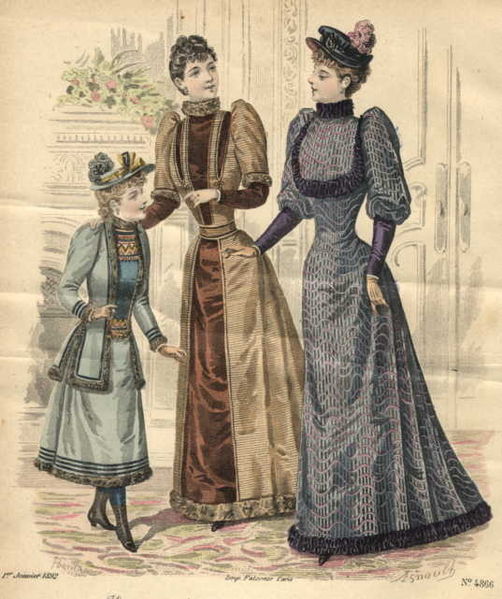
AUNT NELL'S ADVICE.
THE Walters family were going to remove to another town. Mrs. Walters was not very strong, so, to the children's delight, their favorite aunt Nell came to help them move. Lizzie had grown to be such a nice tall girl that Aunt Nell was much pleased with her. She was capable, very bright, and extremely good natured and unselfish. Only one thing puzzled her aunt after awhile, and this was that Lizzie was not sought after by other girls of her age. Little Bell, whose temper was rather uncertain, had plenty of friends; Bob had boys after him early and late; but Lizzie seemed to have no mates.
"I will find out how this is," said Aunt Nell to herself; so one day, when she saw Lizzie run to the gate and tease two young schoolmates to come in for a while, she resolved to watch affairs. Lizzie rushed about cheerily, bringing out on the piazza chairs, books, games, fancy-work--everything she thought would amuse them. They nodded pleasantly to Aunt Nell, not caring in the least that she sat near enough to hear their conversation.
They stayed an hour, then went home. Not an unkind, untrue, or improper word had been spoken, yet Aunt Nell was wiser than before. At the gate she heard Lizzie beg them to "come tomorrow," but they had polite excuses, and refused.
Lizzie came slowly back, and, dropping into a seat, said, "I am glad we are going to Newport.
I want to know some new girls."
"Are these not pleasant girls?"
"Yes; but it does' not seem as if they liked me—as—well as they like almost any other girl in my school," replied Lizzie; dolefully.
"I think I have found out why that is this afternoon."
"Why?" exclaimed the young girl, in great surprise.
"Because, my dear child, you bore them; you talk about yourself incessantly. It is I, I—' every moment. Kate spoke of her new dress very simply; you scarcely waited for her to cease talking you were so eager to-tell 'I have a new pink one,' and 'I would like,' and 'I shall trim,'
and 'I—, I—, I—.' Every incident they mentioned suggested something personal to you: One time I, 'and off you went in a long story—all 'I' —whose only point of real interest was that it happened to you.
You were not attentive to their account of events in their lives; you listened with a blank face, and a mind full of what you were going yourself to tell next. This is a bad habit, and one that will cause you to be very uninteresting to others, and to appear very much more conceited than you are."
Lizzie's cheeks were very red, but she heard her aunt respectfully, and agreed to try a plan she proposed.
"When you go to this new home and enter this new school, start in a new way. Don't bring one
single ‘I' into company unless he is invited—that is, only say I think,' etc., when somebody asks what you think—but spend your time and breath in interesting yourself in your friends, their ideas, plans, and pleasures. Learn to listen, not merely to wait because you cannot decently interrupt them. In short, Lizzie, when you want to say 'you' until you conquer this habit that makes you tiresome to your playmates."
Lizzie was not stubborn or stupid; she laid this little lesson to heart, and in due time tried it as an experiment. When she entered the new school in the new place, she was at once impelled to tell with a capital "I" how she had passed all her previous life, but steadily she fought with her fault.
She had too much good feeling to say disagreeable things or to ask impertinent questions; consequently her thoughtful interest in the girls pleased them. Soon she herself found it was very nice to know what others thought, felt, liked. The attention to some one besides herself came more and more easily.
Some of the girls who read this may be troubled with Lizzie's bad habit. If so, you would better try to cure the fault, for it is one that will hurt you all your life:
S. S. Visitor.